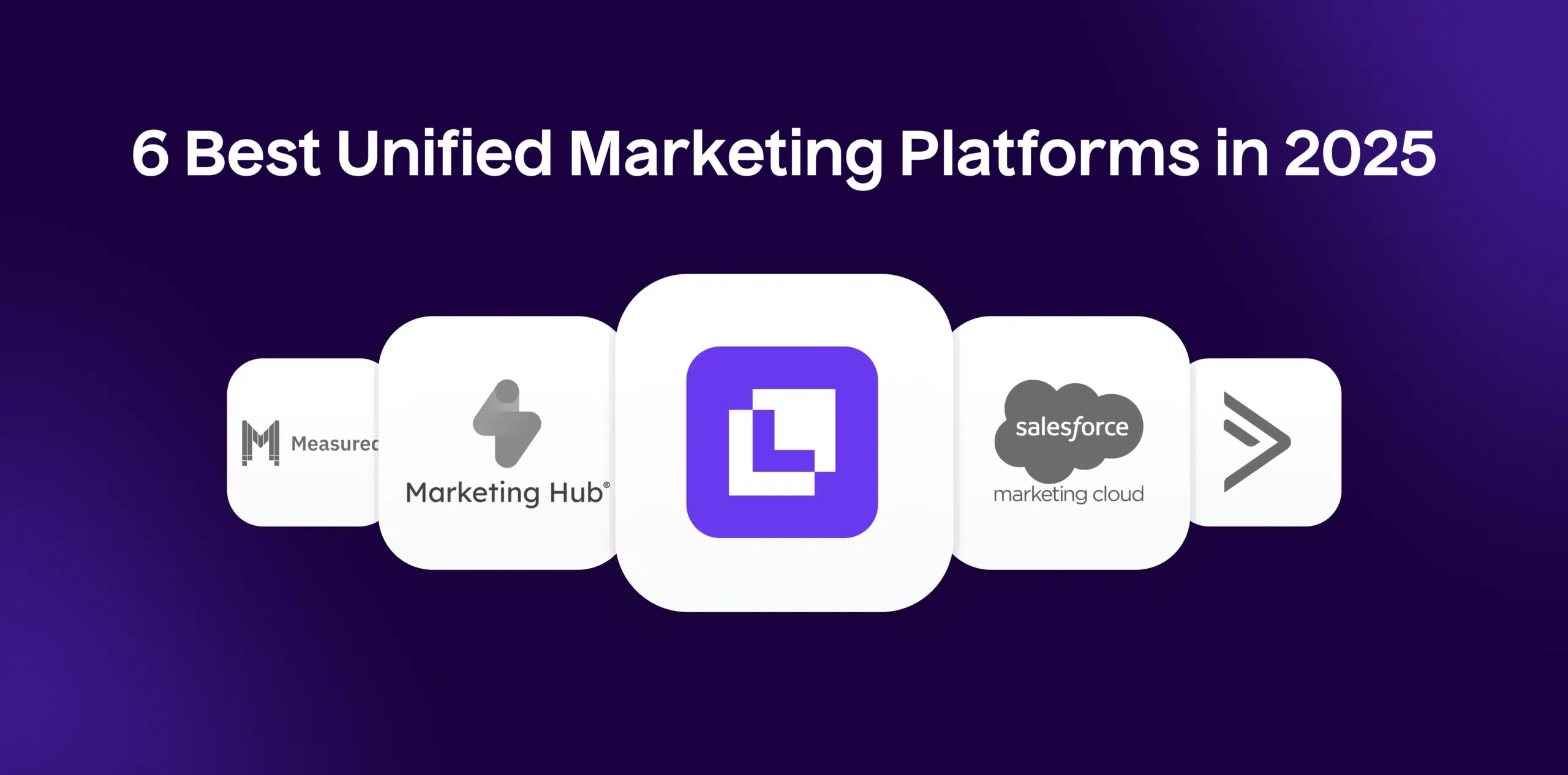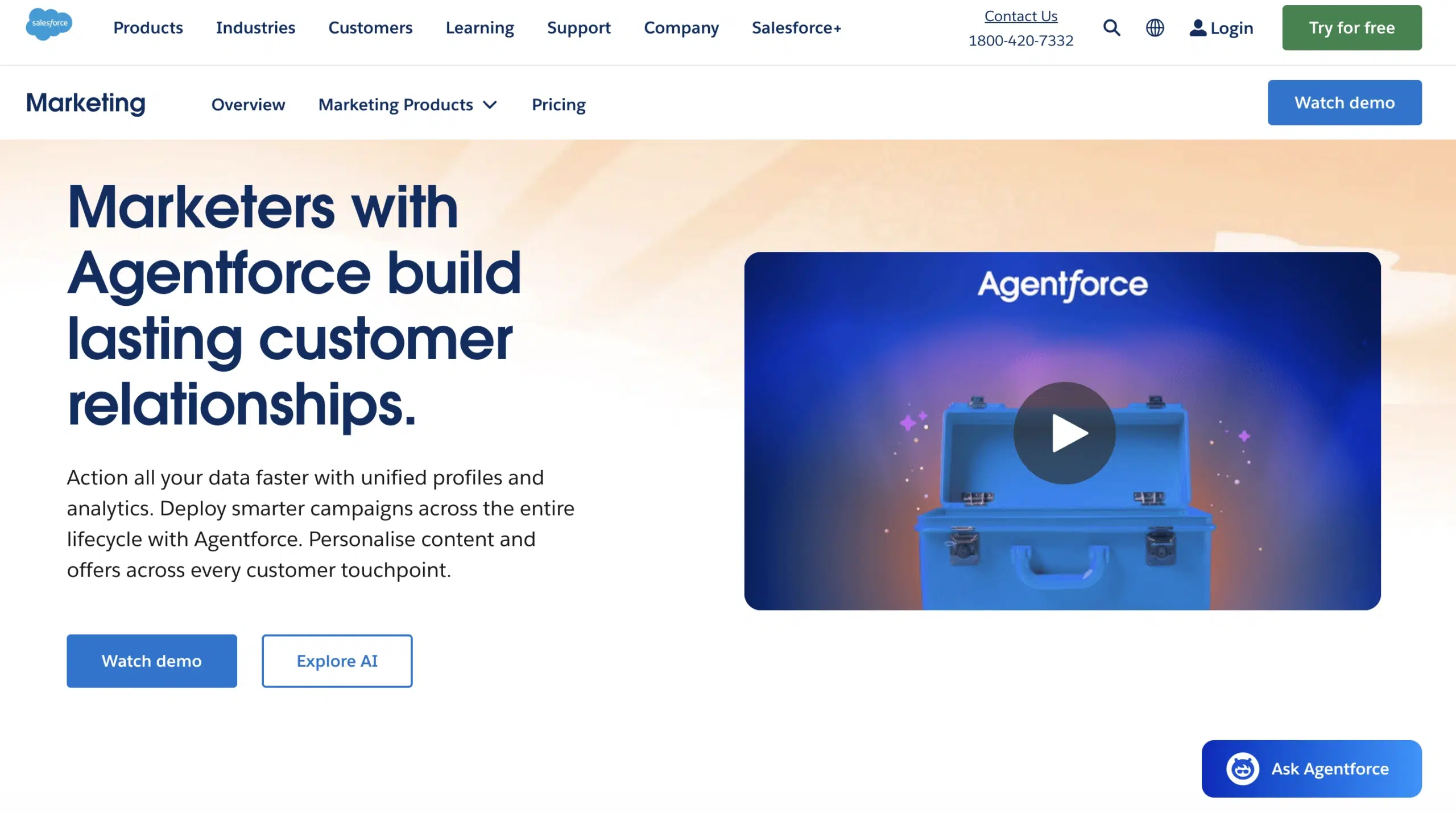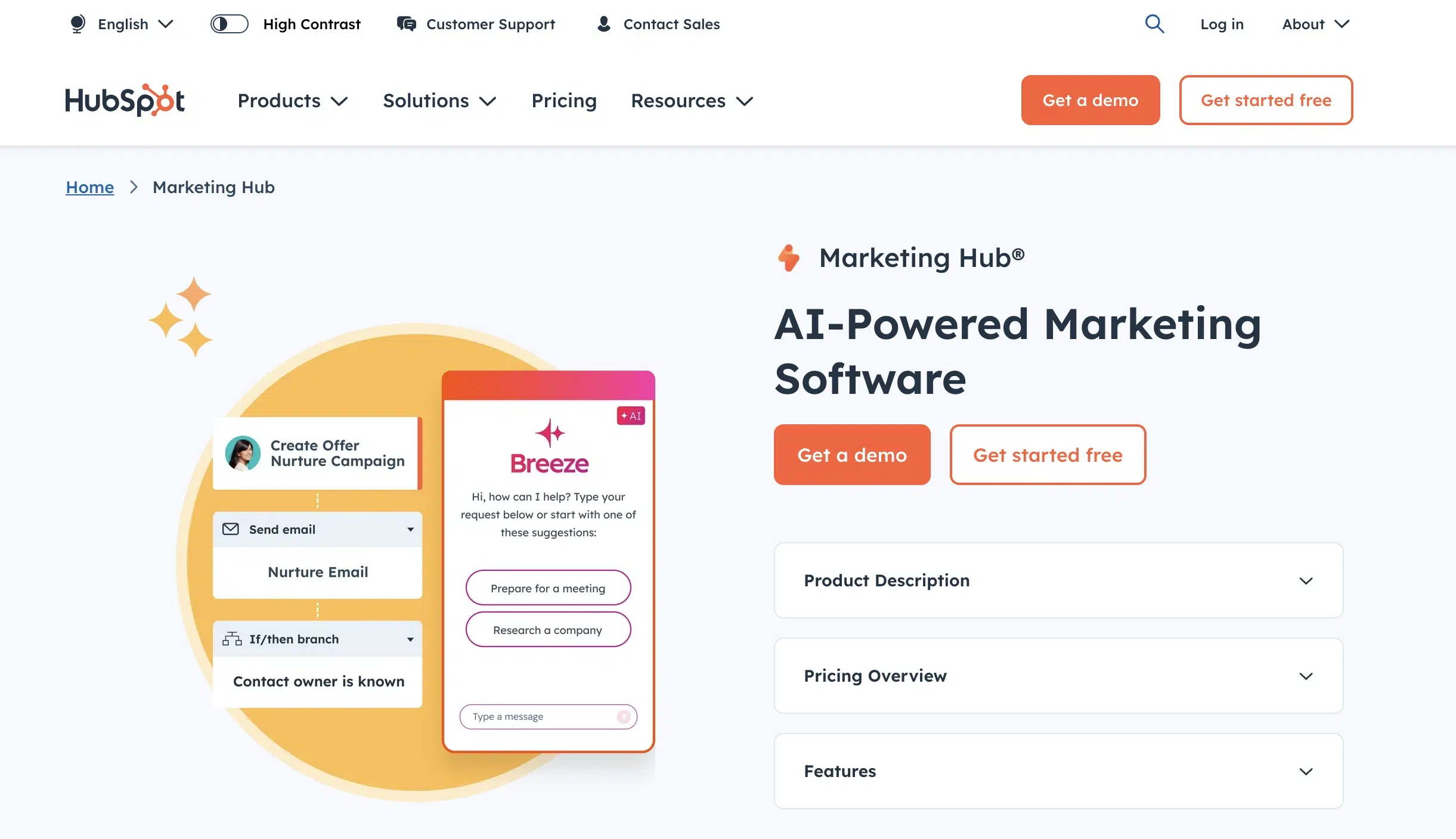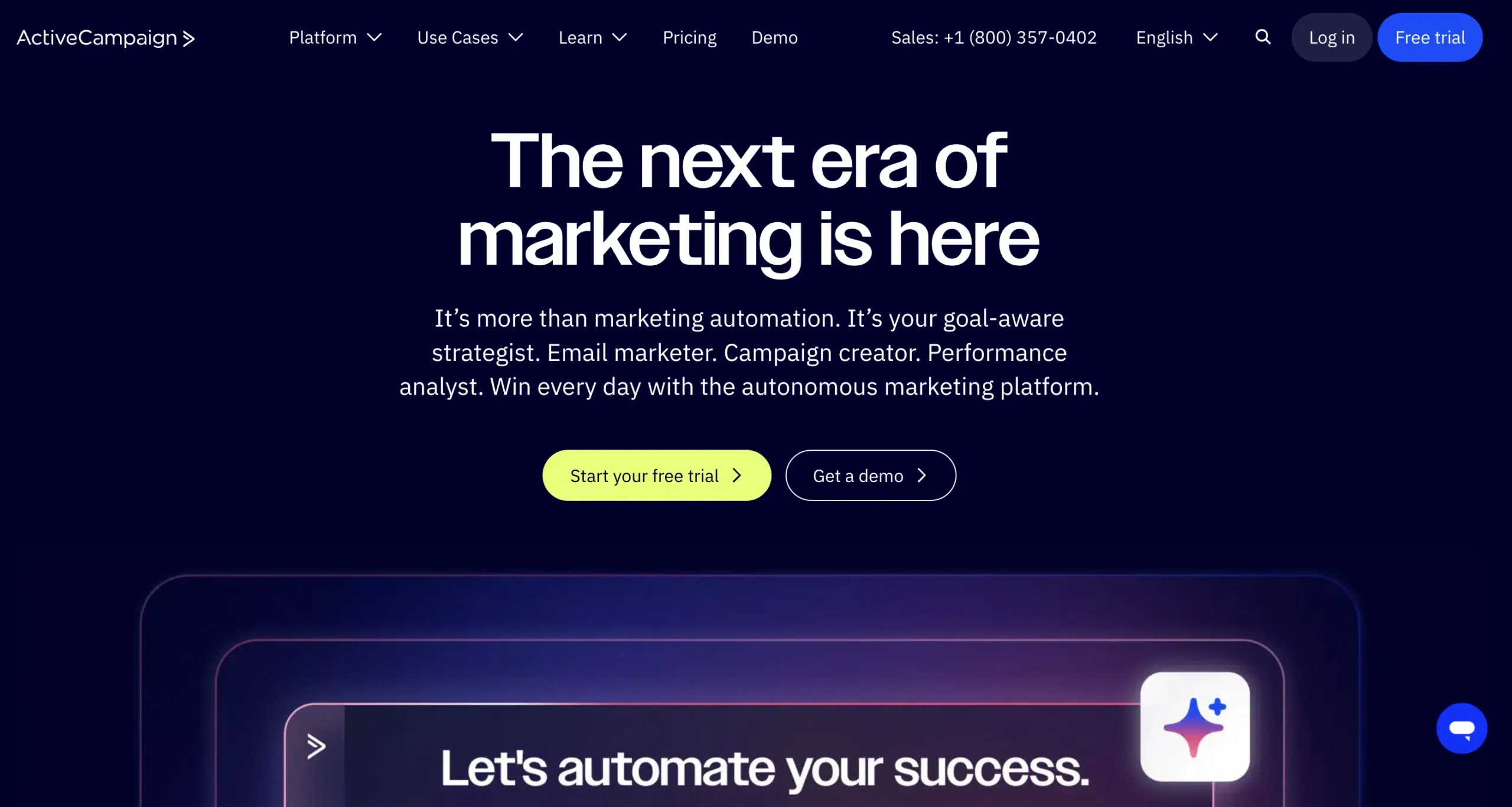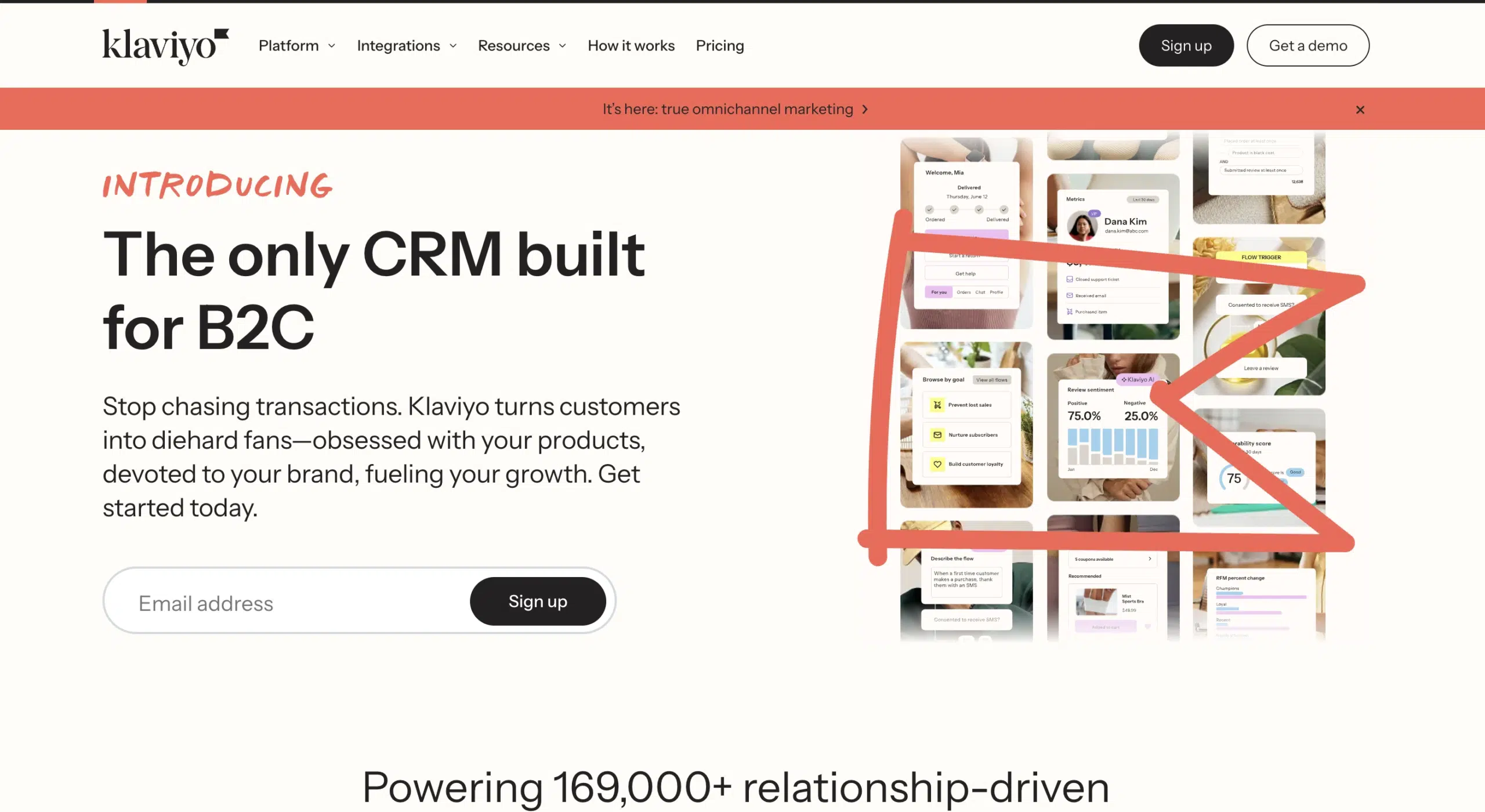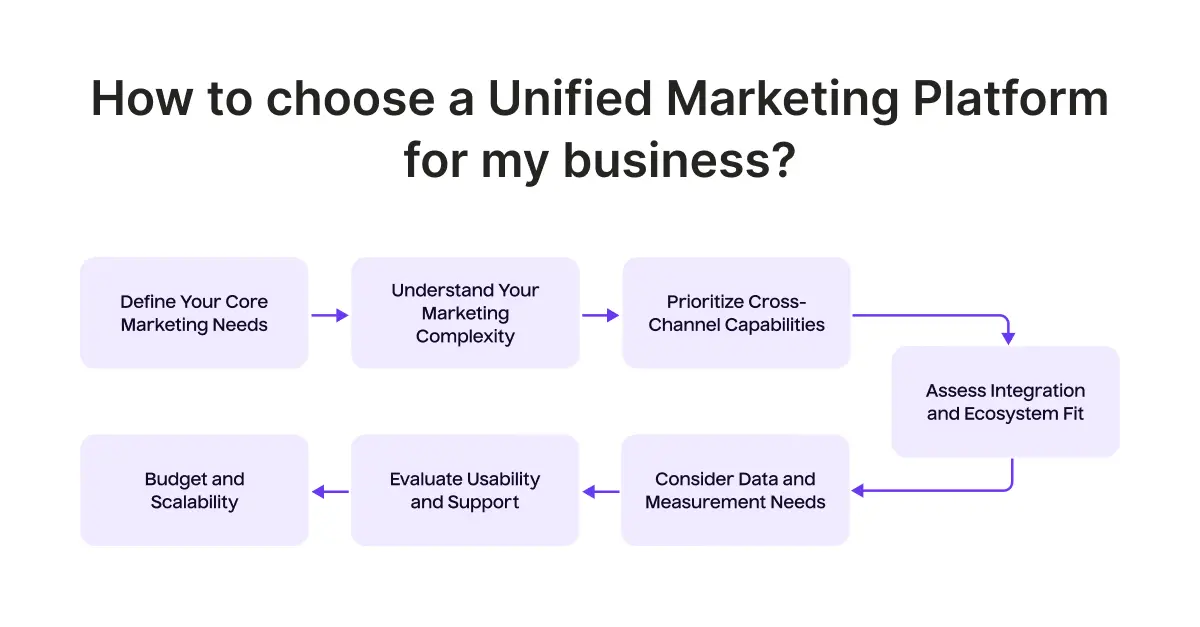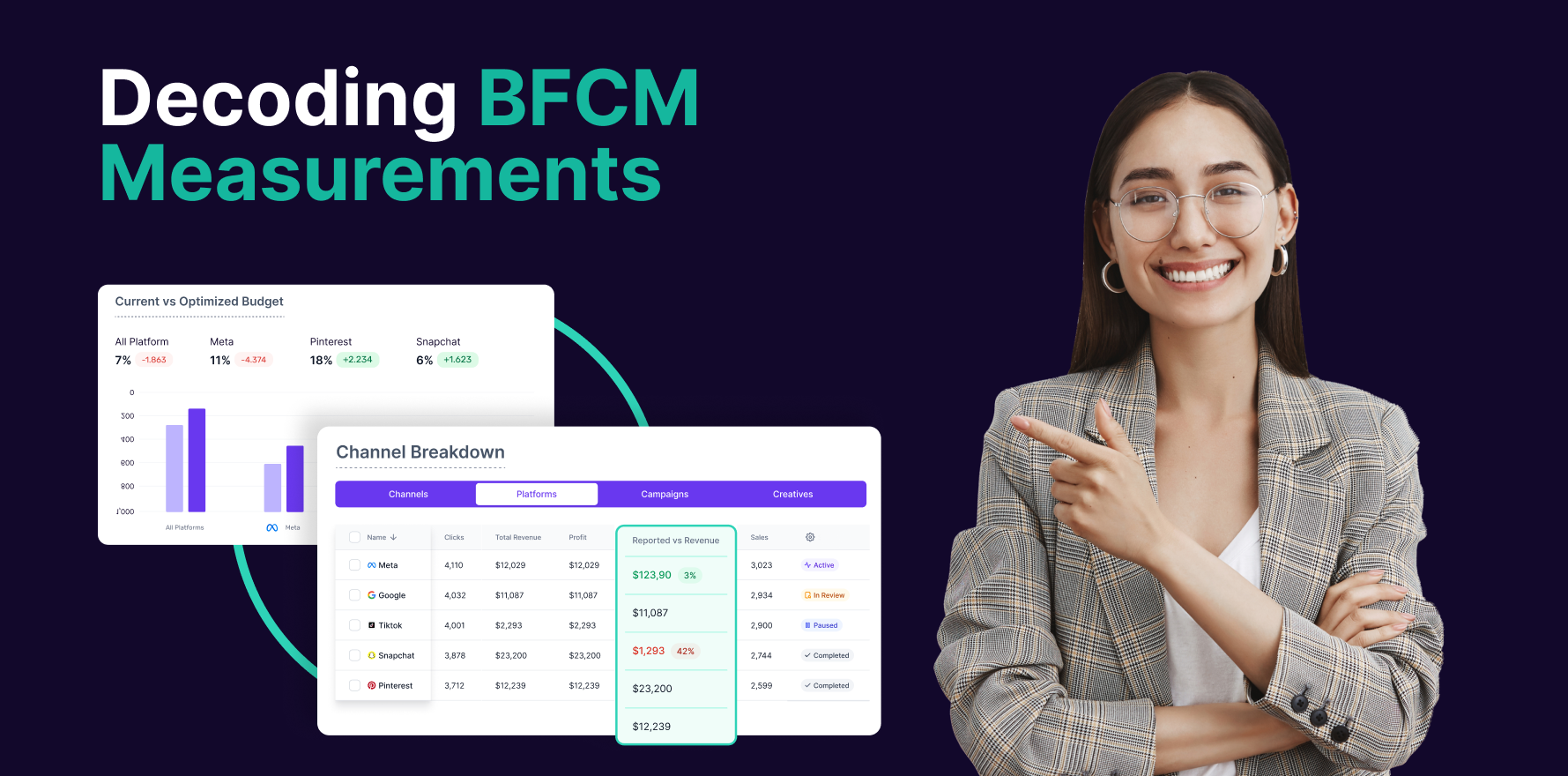In today’s fragmented digital landscape, marketers juggle dozens of tools across advertising, email, social media, analytics, and more. This disjointed approach often leads to data silos, misaligned teams, and a blurry view of performance. That’s where the Unified Marketing Platform comes in a modern solution designed to bring cohesion, clarity, and control to marketing operations.
By consolidating campaign management, measurement, automation, and customer data into a single platform, unified marketing systems help businesses streamline their workflows, improve ROI visibility, and deliver consistent customer experiences across channels.
But not all platforms are built the same.
Whether you’re a growing brand looking for an all-in-one tool or an enterprise in need of deep measurement and orchestration, choosing the right platform depends on your goals, tech stack, and marketing maturity.
In this guide, we’ll explore:
- What unified marketing platforms are and why they matter
- The different types of platforms available today
- A curated list of the 5 best unified marketing platforms in 2025, including their strengths, limitations, and best-fit use cases
What is a Unified Marketing Platform?
A unified marketing platform is a software solution that helps marketers manage various marketing activities within a single system. These activities include creating and managing campaigns across multiple channels, as well as measuring the effectiveness of marketing efforts using a unified marketing measurement system.
The ultimate aim of a unified marketing platform is to break down data silos, enable data exchange across channels, and provide a comprehensive view of marketing performance.
Types of Unified Marketing Platforms in the Modern Marketing Era
1. Unified Campaign Management Platform
A Unified Campaign Management Platform is a centralized system that enables marketers to plan, create, execute, and manage multichannel marketing campaigns (e.g., email, social, ads, web, SMS) from a single interface.
2. Unified Marketing Measurement Platform
A Unified Marketing Measurement Platform consolidates marketing performance data from all channels and applies a combination of measurement methodologies (e.g., CausalMarketing Mix Modeling, MTA, Incrementality testing, and Causal attribution) to give marketers a single source of truth for ROI and attribution.
Read More About: What is Unified Marketing Measurement?
3. Unified Marketing Automation Platform
A Unified Marketing Automation Platform automates the execution of personalized marketing campaigns and workflows across channels such as email, SMS, push notifications, and digital ads based on customer behavior and lifecycle stages.
5 Best Unified Marketing Platforms in 2025
1. Salesforce Marketing Cloud
Platform Type: Unified Campaign Management Platform
Salesforce Marketing Cloud is a robust unified campaign management platform that empowers marketers to deliver personalized, data-driven campaigns across email, mobile, social, web, and advertising. Built for enterprise needs, it offers advanced journey orchestration, AI-powered insights, and deep integration with the Salesforce ecosystem to drive seamless customer experiences.
Best For: Enterprise brands needing cross-channel orchestration and personalization at scale
Key Features
- Journey Builder for personalized customer journey mapping
- Audience Studio for advanced segmentation and targeting
- Email Studio and Mobile Studio for multichannel campaign execution
- Advertising Studio for digital ad integration (Facebook, Google, LinkedIn, etc.)
- Einstein AI for predictive insights and recommendations
- Real-time data syncing with Salesforce CRM and Service Cloud
- Analytics and reporting dashboards for performance tracking
Benefits
- End-to-end campaign management across all major channels in one platform
- Powerful personalization and automation using real-time data and AI
- Deep Salesforce integration makes it ideal for sales-marketing alignment
- Scalable for large teams and global campaigns
- Flexible segmentation for advanced audience targeting
Limitations
- High cost: not ideal for small or mid-sized businesses
- Steep learning curve: requires technical expertise or implementation partners
- Complex setup and maintenance: especially for companies without in-house marketing ops
- Lacks true Unified Marketing Measurement: while it offers reporting and analytics via Marketing Cloud Intelligence (formerly Datorama), it does not provide MMM, MTA, or incrementality testing capabilities found in dedicated measurement platforms like Lifesight or Measured
2. HubSpot Marketing Hub
Platform Type: Unified Campaign Management & Automation Platform
HubSpot Marketing Hub combines CRM, email marketing, campaign management, automation, and content tools into one user-friendly platform. Ideal for growing businesses, it supports inbound marketing strategies with seamless integration across sales and service.
Best For: Mid-sized businesses and marketing teams seeking an all-in-one platform
Key Features
- Drag-and-drop email and landing page builder
- Campaign tracking and analytics dashboard
- Workflow automation and lead nurturing tools
- Integrated blog, SEO, and content tools
- CRM, sales, and service integration
- Social media publishing and monitoring
- Marketing attribution and reporting
Benefits
- All-in-one platform with marketing, sales, service, and CMS in a single ecosystem
- User-friendly interface with minimal setup time
- Built-in CRM eliminates the need for third-party tools
- Strong content and inbound marketing capabilities (blog, SEO, forms)
- Comprehensive campaign management that lets you plan, execute, and track multichannel campaigns easily
- Excellent support and learning resources, including HubSpot Academy
- Scales well from small teams to mid-market organizations
- Native integrations with hundreds of apps (e.g., Slack, Shopify, Zoom)
Limitations
- Limited advanced customization less flexibility than enterprise tools like Salesforce or Adobe
- Marketing automation is less powerful compared to platforms like Marketo or ActiveCampaign
- Pricing increases quickly as contact lists and feature needs grow
- Reporting depth is limited unless you upgrade to higher-tier plans
- Not designed for advanced Unified Marketing Measurement while attribution and campaign reporting exist, it lacks MMM, MTA, and incrementality testing capabilities found in platforms like Lifesight or Measured.
3. Zoho Marketing Plus
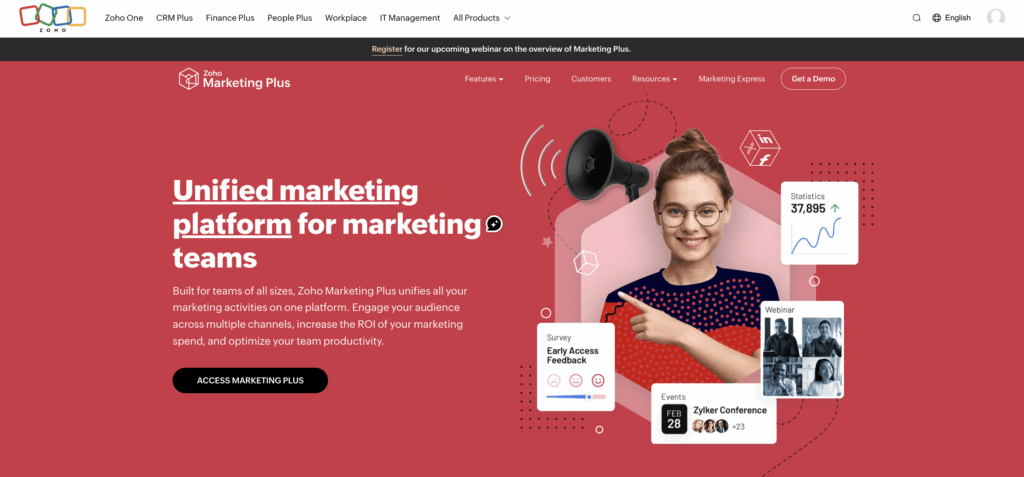
Platform Type: Unified Campaign Management & Automation Platform
Zoho Marketing Plus is Zoho’s all-in-one marketing platform designed to unify marketing activities across channels, including email, social media, webinars, SMS, and web. It brings campaign planning, execution, collaboration, and measurement into a single interface, making it a strong choice for growing businesses that need cohesive, cross-channel marketing without the complexity or cost of enterprise-grade tools.
Best For
SMBs and mid-sized teams looking for a unified, cost-effective marketing suite with strong collaboration features and deep native integration with Zoho’s broader ecosystem (CRM, Analytics, etc.)
Key Features
- Omnichannel Campaign Management: Plan, execute, and track campaigns across email, SMS, social media, webinars, and events
- Marketing Automation: Automate lead nurturing, follow-ups, and personalized workflows
- AI-Powered Insights: Use Zoho’s Zia AI to get recommendations and predictive insights
- Collaboration Tools: Shared marketing calendar, brand asset management, and team commenting
- Built-in Surveys and Forms: Collect audience feedback and segment leads
- Native Integrations: Seamlessly integrates with Zoho CRM, SalesIQ, Zoho Analytics, and other Zoho tools
- Performance Dashboards: Monitor campaign KPIs and engagement metrics in real time
Benefits
- Streamlined campaign planning and collaboration across teams
- Strong integration with the Zoho suite for CRM, analytics, and customer service
- Simple UI with minimal learning curve
- Affordable pricing, ideal for small to medium-sized businesses
- Comprehensive all-in-one toolset for marketing execution
Limitations
- Lacks advanced analytics and attribution modeling like MMM, MTA, or incrementality testing
- Not suited for enterprises with complex marketing operations or multi-brand orchestration
- Customization and scalability may be limited compared to platforms like Salesforce or Adobe
- Fewer third-party integrations compared to more mature ecosystems like HubSpot or ActiveCampaign
4. ActiveCampaign
Platform Type: Unified Marketing Automation Platform
ActiveCampaign is a cloud-based marketing automation platform that blends email marketing, CRM, live chat, and AI into one cohesive system. Known for its powerful automation builder, it empowers businesses to personalize customer journeys, streamline marketing and sales operations, and scale communications across channels like email, SMS, and web. With over 900 integrations and built-in AI tools, it’s especially well-suited for fast-growing businesses and agencies.
Best For: Small to mid-sized businesses, agencies, and sales-led teams that need advanced marketing automation, CRM, and personalized engagement without the complexity of an enterprise platform.
Key Features:
- Visual automation builder for multi-step workflows.
- Email, SMS, and on-site messaging in one unified platform.
- Behavioral triggers and dynamic content personalization.
- Built-in CRM for contact, deal, and pipeline management.
- “Conversations” live chat for real-time customer support.
- Over 900 integrations including Gmail, Shopify, Salesforce, and WordPress.
- Generative AI tools for content creation and campaign optimization.
- A/B testing, automation insights, and reporting tools.
- Customizable forms, segmentation, and tagging.
Benefits
- Powerful automation capabilities tailored for both marketing and sales use cases.
- Combines CRM, email, chat, and automation into one seamless experience.
- AI tools enhance content generation and campaign performance.
- Affordable pricing with strong value for small and mid-sized businesses.
- Easy integration with major platforms across eCommerce, productivity, and sales.
- Ideal for agencies managing multiple client accounts.
- Helps align marketing and sales teams through shared visibility and automation.
Limitations
- Reporting and analytics may lack depth for advanced attribution or performance measurement.
- Not designed for enterprise-scale cross-channel media planning.
- Limited creative flexibility in email design compared to some competitors.
- Automation complexity can be overwhelming without onboarding or training.
- No built-in marketing measurement tools like MMM or incrementality testing.
5. Klaviyo
Platform Type: Unified Marketing Automation & Customer Data Platform (CDP)
Klaviyo is a unified marketing automation and customer data platform built for growth-focused eCommerce businesses. It empowers marketers to create personalized, data-driven campaigns across email, SMS, and other channels by leveraging real-time customer data. With robust automation, predictive analytics, and seamless integrations, Klaviyo helps brands increase engagement, retention, and revenue through scalable and targeted customer experiences.
Best For: eCommerce brands and DTC businesses looking to unify customer data, personalize marketing at scale, and drive retention through email, SMS, and predictive insights.
Key Features:
- Email Marketing: Automated workflows, abandoned cart reminders, product recommendations, and personalized email campaigns
- SMS Marketing: Two-way SMS messaging for promotions, alerts, and VIP engagement
- Customer Data Platform (CDP): Centralized customer profiles built from behavioral, transactional, and engagement data
- AI & Predictive Analytics: Predict customer lifetime value (CLV), churn likelihood, and optimal send times
- Multi-Channel Automation: Create consistent experiences across email, SMS, and web
- Customer Service Integration: AI-powered tools for delivering personalized customer support
- Prebuilt and Customizable Templates: Quick campaign setup with drag-and-drop design
- Native Integrations: Deep integrations with Shopify, BigCommerce, WooCommerce, Facebook, and more
Benefits
- Helps boost customer engagement through highly personalized, timely messaging
- Strengthens customer loyalty with lifecycle campaigns and predictive retention tools
- Unifies marketing and customer data for better decision-making
- Eliminates data silos through native CDP functionality
- Scales efficiently with growing eCommerce businesses
- Reduces reliance on multiple marketing tools
- Strong eCommerce integrations and templates optimized for conversions
Limitations
- Best suited for eCommerce and may lack depth for B2B or non-retail industries
- Advanced reporting and segmentation may require a learning curve
- Lacks built-in media planning and incrementality measurement tools
- SMS usage can add significant cost at scale
- May require developer support for advanced customization or integrations
How to Measure Your Marketing Efforts Using Unified Marketing Measurement Platform?
Most marketers, SMBs and even enterprises rely on siloed tools like Google Ads, Meta, or email platforms that over-credit their own performance. This leads to biased data, wasted ad spend, and poor budget decisions.
Unified Marketing Measurement bring clarity by combining advanced methodologies like Marketing Mix Modeling, Incrementality Testing, and Causal Attribution, so you finally know what’s actually working.
Using Unified Marketing Measurement Platform, marketers move from surface-level analytics to more informed, data-driven decision-making by answering critical questions such as:
- Which channels and marketing efforts are actually driving incremental revenue?
- Which channels are not contributing to marketing impact and are simply wasting ad spend?
- Which channels would drive impact even without any marketing effort?
- Where should we reallocate the budget to improve ROAS?
- How do media investments influence performance across the entire funnel?
In addition to answering these questions, Unified Marketing Measurement Platforms often include AI-powered recommendations that translate insights into action.
These automated action items can help marketers:
- Reallocate budgets in real time based on channel efficiency
- Identify underperforming campaigns and suggest optimizations
- Forecast future performance under different spend scenarios
- Recommend ideal spend levels by channel or audience segment
- Alert teams to sudden shifts in performance or media effectiveness
By combining advanced measurement with AI-driven guidance, these platforms help marketing teams not just analyze the past, but take confident, proactive steps toward better outcomes.
Suggested Read: What is Marketing Measurement?
5 Best Unified Marketing Measurement Platforms
Here are the 5 best Unified Marketing Measurement Platforms that combine advanced methodologies such as Marketing Mix Modeling, Incrementality Testing, and Causal Attribution to eliminate wasted ad spend, improve budget allocation, and identify optimal spend levels.
Read More About: Best Unified Marketing Measurement Platform
How to choose a Unified Marketing Platform for my business?
Choosing the right Unified Marketing Platform depends on your goals, team structure, tech stack, and marketing maturity. Here are key criteria to guide your decision:
1. Define Your Core Marketing Needs
- Are you focused on campaign creation and orchestration? → Look for Unified Campaign Management Platforms.
- Do you need performance tracking, ROAS, and attribution? → Prioritize Unified Marketing Measurement Platforms.
- Want to automate email, SMS, and customer journeys? → Go with a Unified Marketing Automation Platform.
2. Understand Your Marketing Complexity
- SMBs or startups may benefit from all-in-one platforms like HubSpot or ActiveCampaign that are easy to implement.
- Enterprise brands with multiple teams, tools, and regions may require scalable platforms like Salesforce Marketing Cloud or Lifesight for deep integration and customization.
3. Prioritize Cross-Channel Capabilities
Choose a platform that can manage:
- Paid and organic channels (ads, email, social, search, web)
- Online and offline attribution
- Omnichannel customer journeys
Avoid siloed solutions that only support one or two channels unless you plan to integrate others separately.
4. Assess Integration and Ecosystem Fit
- Does it integrate with your CRM, data warehouse, analytics tools, eCommerce platform, or ad networks?
- Look for platforms that seamlessly connect with your existing tech stack (e.g., Salesforce, Shopify, Segment, Meta Ads).
5. Consider Data and Measurement Needs
If data-driven decision making and budget optimization are a priority, ensure the platform supports:
- Marketing Mix Modeling (MMM)
- Incrementality Testing
- Attribution Modeling
- Unified Dashboards and ROAS reporting
6. Evaluate Usability and Support
- Is the platform intuitive for your marketing team to use daily?
- Check for onboarding, support, documentation, and community resources.
7. Budget and Scalability
- Startups might favor affordable, modular platforms.
- Growing or enterprise teams should ensure the platform can scale with them, adding more data sources, channels, and users as needed.
Conclusion
Unified marketing platforms are essential for breaking down silos, maximizing ROI, and driving personalized customer experiences across channels. In 2025, the market offers diverse solutions tailored to different needs, from enterprise campaign orchestration to AI-powered measurement and automation. Carefully evaluate your marketing objectives, scale, and data maturity to select the platform that best empowers your business to deliver impactful, data-driven marketing.
FAQ’s
1. How does a unified marketing platform differ from traditional marketing tools?
Traditional tools often focus on individual functions like email or analytics. A unified marketing platform integrates multiple capabilities, such as campaign execution, measurement, and automation, into a single system. This eliminates silos and streamlines workflows.
2. Who should use a unified marketing platform?
Unified marketing platforms are ideal for growing and enterprise-level businesses that manage multiple channels, need better cross-team alignment, or want to make data-driven marketing decisions more efficiently.
3. Can a unified marketing platform replace my existing marketing tools?
Yes, many unified platforms consolidate tools like email marketing, CRM, analytics, and automation. However, depending on your needs, you may still integrate specialized tools for added flexibility or depth.
4. What are the benefits of using a unified marketing platform?
They offer improved efficiency, better ROAS tracking, seamless cross-channel campaign management, and a single source of truth for marketing performance. This leads to more cohesive strategies and smarter budget decisions.
5. Are unified marketing platforms suitable for small businesses?
Some platforms like HubSpot or ActiveCampaign are well suited for small businesses due to ease of use and scalability. However, advanced platforms with deep analytics may be more suitable for larger or data-mature teams.
6. Do these platforms support offline and online marketing channels?
Many unified platforms, especially measurement-focused ones like Lifesight or Measured, support both offline (such as TV and print) and online (such as paid social and search) channels to provide a holistic view of marketing impact.
7. How important is measurement and attribution in a unified platform?
It is critical for understanding true ROAS, optimizing budget allocation, and making strategic decisions. Platforms with built-in measurement tools give marketers a clearer picture of what is driving results.
8. Is there a single platform that does campaign management, automation, and measurement equally well?
Most platforms that offer campaign management and automation, like HubSpot or Salesforce Marketing Cloud, only include basic or biased measurement features. These typically rely on last-touch attribution or platform-reported metrics, which don’t reflect true incremental performance. For accurate, unbiased insights using methodologies like Marketing Mix Modeling (MMM) or Incrementality Testing, businesses need to pair their execution tools with dedicated measurement platforms like Lifesight or Measured.
9. What’s the difference between marketing automation and unified marketing measurement?
Marketing automation focuses on executing and personalizing campaigns across channels. Unified marketing measurement analyzes performance across channels using methodologies like MMM, attribution, and incrementality.
10. How much do unified marketing platforms typically cost?
Pricing varies widely, from a few hundred dollars per month for SMB-friendly tools to thousands for enterprise-grade platforms. Costs depend on features, scale, data volume, and integration complexity.
Essential resources for your success
